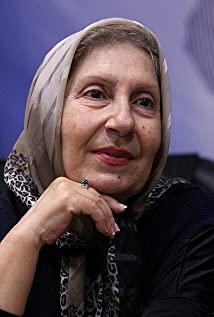Someone commented on a female director who just won an award, saying that her filmmaking techniques tended to be promiscuous and did not know how to restrain herself. Whether this statement is pertinent or not, I will not comment here. However, it is certain that the Iranian director Asghar Farhadi is a person who knows how to restrain himself. His works are full of intense dramatic conflicts and violent emotional fluctuations, but his works The narrative technique is relatively restrained and restrained, and this restraint does not prevent him from telling the story in a profound and transparent way, with twists and turns, and clear layers. The shots he schedules are so calm and calm that the audience seems to be directly facing the life of the people in the film.
In Nader and Simin, a Separation, Asghar Farhadi recreates the living conditions, problems and problems faced by two Iranian families from an objective and equal perspective. The conflict that is expected to come, although the expression is simple and simple, but the rich content contained in it makes the audience brainstorm, as the "Sunday Daily" put it - "This is an impressive work, the film is full of Skilled in control, tension and connotation, this film is thought-provoking, and every plot twist makes people hold their breath with tension." It
can be said that this is a film that deeply reveals the current state of Iranian society. Two families belonging to different classes accidentally went on fire. They were both kind people and both had their own burdens in their lives. However, during the conflict, they had to lie, confront each other, and even fight each other and go to court. Like a rope twisted at both ends, the fate of the two families always leads the audience's sight and mood, and the tension is filled with the flow of light and shadow. In addition, through local areas such as families, schools, hospitals, and courts, the film allows the audience to glimpse many aspects of Iranian people's life, and it is also thought-provoking in many aspects, such as tradition and future, doctrine and truth, justice and justice, lies and beliefs, Family and marriage, change and fear, and more.
The performance of the actors in the film is almost lifelike, simple, natural and expressive. The adult actors do not need to say much, and the performance of the two young actors is also admirable, regardless of the resentment of the young daughter of the hourly female worker after going through the whole thing. The guarded glance, still middle-class Nader and Westminster's 11-year-old daughter Temey, tearfully answering the judge's question at the end of the credits move audiences in the most subtle of situations. And it is clear that in the whole conflict, it is the growing child who will inevitably suffer the most.
Also sadly, Westminster's decision to divorce Nader was not because of a broken relationship, but because she didn't want to raise her daughter in such a country (among other factors, girls don't have the chance to get a better education in Iran), so she decided to bring The daughter went abroad, and Nader had to stay because he was unwilling to leave his father with Alzheimer's. At first Nader did not agree to the divorce. The trial at the beginning of the film did not result in a divorce. After the torture, at the end of the film, the marriage and divorce were concluded, and the problem of choice fell on her daughter Temei.
The film has deep meanings in many places. For example, for many Iranians, this country is like a vicissitudes of life. Although it has many problems, it is difficult to let go. This is the case with Nader. The few words of his sick father can also make him happy. The film uses a set of contrasting pictures to express Nader's affection for his father. Nader shaves his father in a wheelchair. The old father gets along well. Another set of pictures shows Nader bathing the old father after he fell out of bed. Halfway through the bath, he hugged the old father who had lost his voice and cried bitterly. This laugh and cry seems to show that although the old father is now his heavy burden, his joys and sorrows still come from him, just like the Iranians' nostalgia for their homeland.
Westminster represents another part of the Iranians who want to change. As Nader said, she is afraid in her heart. When she encounters problems, she always wants to use money to solve it, whether it is for the piano worker or her husband. Part-time workers in lawsuits and disputes. Afraid of staying in the hopeless homeland, Westminster decided to take her daughter away, but in fact, she lacked enough confidence in the future life in another country, so she always hoped that her husband would accompany her at first, even if it was 40 days before the deadline for going abroad.
Under such circumstances, Temei at the end of the film is caught in a dilemma. Choosing to live with a divorced father or mother means choosing a life, whether to stay with the inherent tradition or go to an unknown future? In this sense, Temey represents a new generation of Iranians who will make a choice. Although the film has an open ending, Temey's trembling sentence "I have made a decision" shows that the director There are still some expectations for the new generation. He asked Temelian to say it several times, and said that she would avoid her parents and tell the judge about this decision. Avoiding parents seems to imply that the new generation wants to let go of the constraints and influences inherent in making decisions.
http://nicolew.blog.hexun.com/70704565_d.html
View more about A Separation reviews











